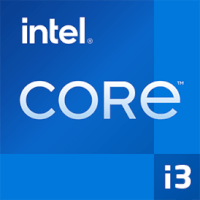

| Intel Core i3-3220 | AMD Epyc 7601 | |
| 3.30 GHz | Frequenza | 2.20 GHz |
| No turbo | Turbo (1 nucleo) | 3.20 GHz |
| No turbo | Turbo (tutti i core) | 2.70 GHz |
| 2 | Core | 32 |
| sì | Hyperthreading? | sì |
| No | Overclock? | No |
| normal | Architettura di base | normal |
| Intel HD Graphics 2500 | GPU | no iGPU |
| 11.0 | Versione DirectX | |
| 3 | massimo mostra | |
| DDR3-1600 | Memoria | DDR4-2666 |
| 2 | Canali di memoria | 8 |
| massimo Memoria | ||
| No | ECC | sì |
| -- | L2 Cache | -- |
| 3.00 MB | L3 Cache | 64.00 MB |
| Versione PCIe | 3.0 | |
| PCIe lanes | 128 | |
| 22 nm | Tecnologia | 14 nm |
| LGA 1155 | Socket | SP3 |
| 55 W | TDP | 180 W |
| VT-x, VT-x EPT, VT-d | Virtualizzazione | AMD-V, SVM |
| Q3/2012 | Data di rilascio | Q3/2017 |
| mostra più dettagli | mostra più dettagli |
Cinebench R20 è il successore di Cinebench R15 e si basa anche su Cinema 4 Suite. Cinema 4 è un software utilizzato in tutto il mondo per creare forme 3D. Il test single-core utilizza solo un core della CPU, la quantità di core o la capacità di hyperthreading non conta.
Cinebench R20 è il successore di Cinebench R15 e si basa anche su Cinema 4 Suite. Cinema 4 è un software utilizzato in tutto il mondo per creare forme 3D. Il test multi-core coinvolge tutti i core della CPU e trae un grande vantaggio dall'hyperthreading.
Cinebench R15 è il successore di Cinebench 11.5 ed è anch'esso basato su Cinema 4 Suite. Cinema 4 è un software utilizzato in tutto il mondo per creare forme 3D. Il test single-core utilizza solo un core della CPU, la quantità di core o la capacità di hyperthreading non conta.
Cinebench R15 è il successore di Cinebench 11.5 ed è anch'esso basato su Cinema 4 Suite. Cinema 4 è un software utilizzato in tutto il mondo per creare forme 3D. Il test multi-core coinvolge tutti i core della CPU e trae un grande vantaggio dall'hyperthreading.
Geekbench 5 è un benchmark multipiattaforma che utilizza pesantemente la memoria di sistema. Una memoria veloce spingerà molto il risultato. Il test single-core utilizza solo un core della CPU, la quantità di core o la capacità di hyperthreading non conta.
Geekbench 5 è un benchmark multipiattaforma che utilizza pesantemente la memoria di sistema. Una memoria veloce spingerà molto il risultato. Il test multi-core coinvolge tutti i core della CPU e trae un grande vantaggio dall'hyperthreading.
Le prestazioni di calcolo teoriche dell'unità grafica interna del processore con precisione semplice (32 bit) in GFLOPS. GFLOPS indica quanti miliardi di operazioni in virgola mobile l'iGPU può eseguire al secondo.
Geekbench 3 è un benchmark multipiattaforma che utilizza pesantemente la memoria di sistema. Una memoria veloce spingerà molto il risultato. Il test single-core utilizza solo un core della CPU, la quantità di core o la capacità di hyperthreading non conta.
Geekbench 3 è un benchmark multipiattaforma che utilizza pesantemente la memoria di sistema. Una memoria veloce spingerà molto il risultato. Il test multi-core coinvolge tutti i core della CPU e trae un grande vantaggio dall'hyperthreading.
Cinebench 11.5 è basato su Cinema 4D Suite, un software popolare per generare moduli e altre cose in 3D. Il test single-core utilizza solo un core della CPU, la quantità di core o la capacità di hyperthreading non conta.
Cinebench 11.5 è basato su Cinema 4D Suite, un software popolare per generare moduli e altre cose in 3D. Il test multi-core coinvolge tutti i core della CPU e trae un grande vantaggio dall'hyperthreading.
Cinebench 11.5 è basato su Cinema 4D Suite, un software popolare per generare moduli e altre cose in 3D. Il test iGPU utilizza l'unità grafica interna della CPU per eseguire i comandi OpenGL.
Alcune delle CPU elencate di seguito sono state sottoposte a benchmark da CPU-Benchmark. Tuttavia, la maggior parte delle CPU non è stata testata e i risultati sono stati stimati da una formula proprietaria segreta di CPU-Benchmark. In quanto tali, non riflettono accuratamente i valori effettivi del marchio Passmark CPU e non sono approvati da PassMark Software Pty Ltd.
La criptovaluta Monero utilizza l'algoritmo RandomX da novembre 2019. Questo algoritmo PoW (prova di lavoro) può essere calcolato in modo efficiente solo utilizzando un processore (CPU) o una scheda grafica (GPU). L'algoritmo CryptoNight è stato utilizzato per Monero fino a novembre 2019, ma potrebbe essere calcolato utilizzando gli ASIC. RandomX beneficia di un elevato numero di core CPU, cache e una connessione veloce della memoria tramite il maggior numero possibile di canali di memoria